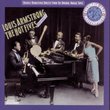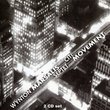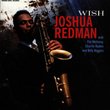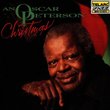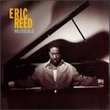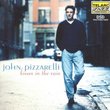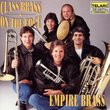| All Artists: Chick Corea Title: Piano Originals Members Wishing: 1 Total Copies: 0 Label: Stretch Records Original Release Date: 6/6/2000 Release Date: 6/6/2000 Genres: Jazz, Pop Styles: Modern Postbebop, Bebop Number of Discs: 1 SwapaCD Credits: 1 UPC: 013431902928 |
Search - Chick Corea :: Piano Originals
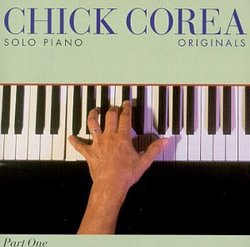 | Chick Corea Piano Originals Genres: Jazz, Pop
Chick Corea has long favored unaccompanied piano performance and has recorded several solo albums, starting with Piano Improvisations (volumes I and II) and continuing through Expressions. Now we have two more: this one, d... more » |
Larger Image |
CD DetailsSynopsis
Amazon.com Chick Corea has long favored unaccompanied piano performance and has recorded several solo albums, starting with Piano Improvisations (volumes I and II) and continuing through Expressions. Now we have two more: this one, devoted to originals, and a companion disc that explores a range of pop and jazz standards. Both albums were drawn from 1999 concerts recorded in Switzerland, Norway, Sweden, and Japan. Originals contains music that is sweet and melodic, and music that is challenging and even a bit jarring. Corea employs his alternately sparkling-then-dusky touch, immaculate articulation, and limitless imagination as he delves into 13 of his own pieces, save two freely interpreted, lyrically stunning Preludes by Alexander Scriabin. Included are a couple of Corea standards: the jaunty "Armando's Rhumba," given a delightfully spirited reading; and the evergreen "Spain," distinguished by strands of enchanting ideas. Then there's the pastoral yet lively "Brasilia," where between paraphrases of the attractive theme, the pianist offers garlands of alternately serene and animated improvisations. The somewhat more intense "Yellow Nimbus" finds thickets of notes and hard-hit chords contrasted by songlike passages. There are four improvised on-the-spot numbers and three "Children's Songs." "No. 6" is playful yet deep, offering dancing chords and zesty lines, while the freely improvised "No. 12" finds Corea generally letting his fertile mind go where it will. --Zan Stewart Similarly Requested CDs
|
CD ReviewsNot that good Derek Irving | Panama, Panama | 09/27/2000 (3 out of 5 stars) "The value of a record is always something relative. It depends on individual taste and expectations. After listening to older records of Corea playing acoustic piano as "Now she sings now she sobs", and even more resent ones as the one recorded recently with Gary Burton and Pat meteney, this solo record of Corea lacks drama, unexpectedness and the drive I expect from a Jazz musician. With the exeption of "Spain" this record seems boring to me." Portrait of the Jazz Pianist as a Recitalist Karl Henning | Boston, MA | 01/23/2002 (5 out of 5 stars) ""Brasilia" is charmingly simple; Corea's playing moves with an easy grace, yet there is no "auto-pilot" to those passages which shed virtuosity. On this piece, especially, one notices (as another reviewer has observed) the variety of articulation of which Corea is capable."Yellow Nimbus" is a fiery, exhilirating dance. Like Albéniz' "Iberia," it is the sort of music written for the piano, by someone who believes it is really a kind of big, black Spanish guitar.The Skryabin preludes are a curious matter. Skryabinists may find they don't especially recognize the composer here; and Corea's audience may come away with the impression that Skryabin was really a sort of Chick Corea, only a century ahead of time. That said, these tracks just sound like part of Corea's sound-world (a very different matter to the Duke Ellington `Nutcracker' arrangement, whose chief virtue [for me] is, that it is not so irredeemably bad as the recently-released Klezmer `version' of Tchaikovsky). I do not begrudge the pianist the liberties he takes with these preludes.The three "Children's Songs" are playful without being child's play.The four `improvisations after suggestions from the audience' are delightful, and a testimony to the agility, and inventiveness of Corea at the piano; this, true even while there are images (snow, a chase) at whose musical portrayal Corea is hardly a novice, and even where we hear affectionate musical bows to Debussy (in "the Falcon"), for example."Armando's Rhumba" and "Spain" are both signatures, and both are treated here with both affection and freshness. If Corea is at all tired of playing these after all these years, he wears the mask well: no tiredness HERE. There are, by turns, bursts of incisive energy, and reflections of the utmost delicacy." Sublime Asanka Perera | Australia | 06/30/2000 (5 out of 5 stars) "Corea plays Corea (with some material adapted from Scriabin) and the result is a wonderful assortment of tracks covering a broad range of colours, moods and rhythms. Sometimes it is his inimitable lyrically seamless shower of notes against the assymtrical left hand rhythms of which he is a master, then it is the dissonant avant-gardish textures he weaves (echoing his "circle" days)or sometimes it is the ethereal and wistfully impressionistic pieces like "Yellow Nimbus". The four improptu tracks, inspired by images suggested by a live audience in Sweden, are cliche-free and gives you an idea of the rich musical ideas Corea has at his disposal. Recording (and the sound of his Yamaha) is top-notch too. Highly recommended."
|

 Track Listings (13) - Disc #1
Track Listings (13) - Disc #1